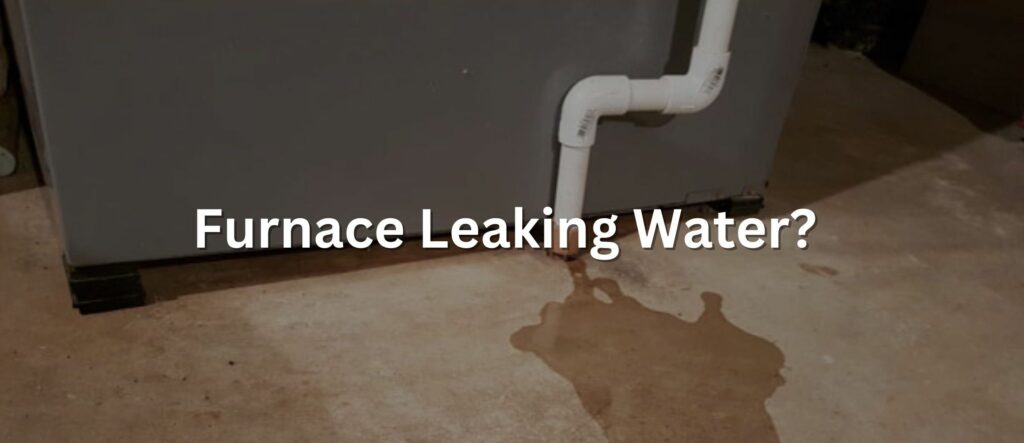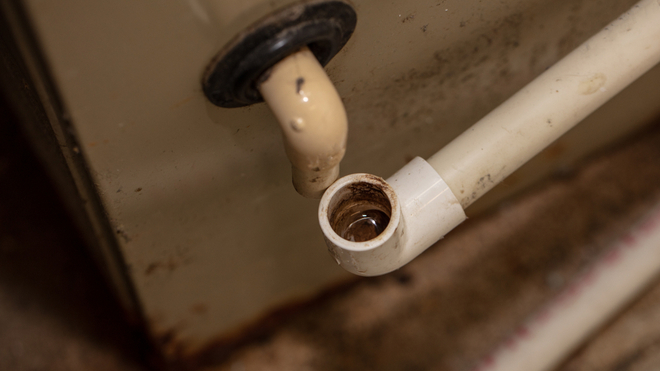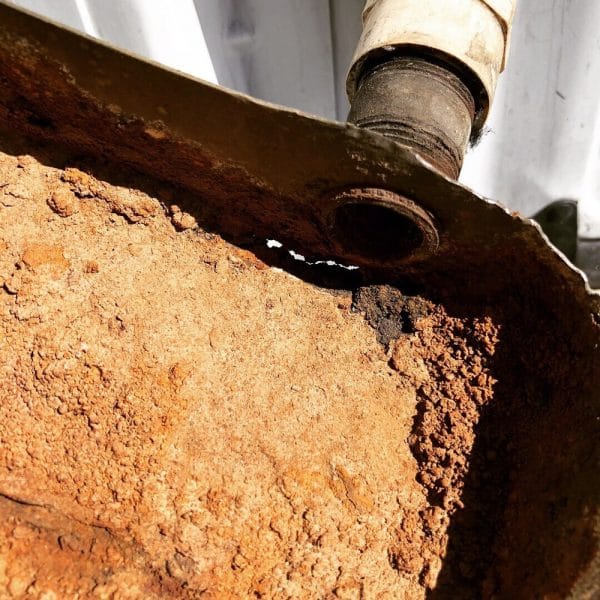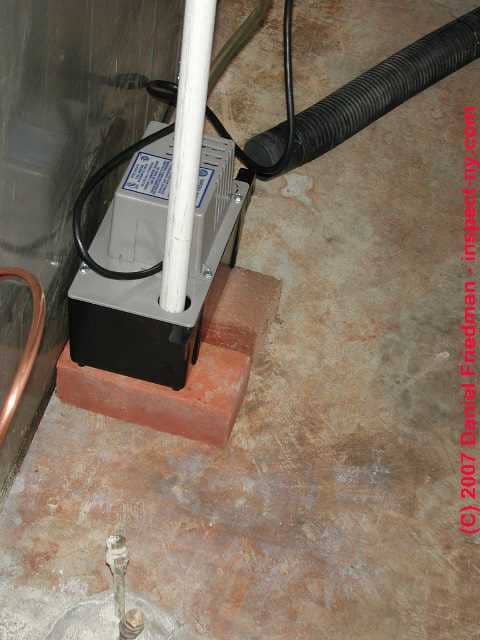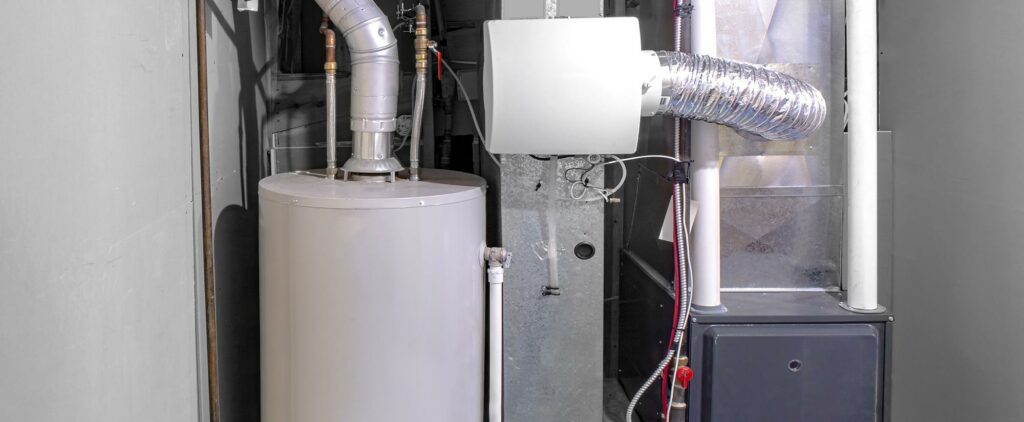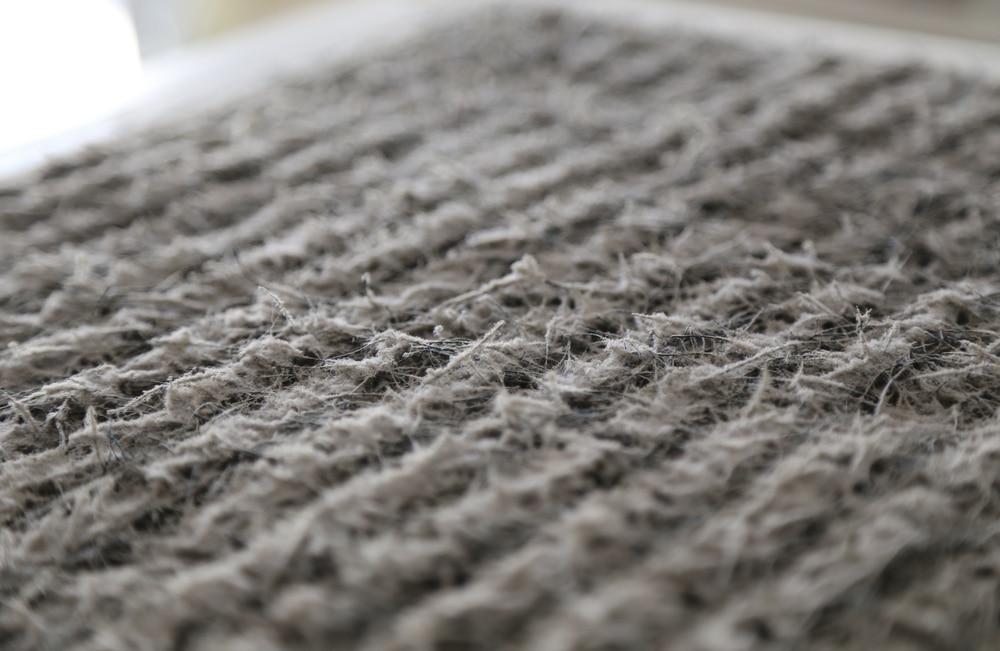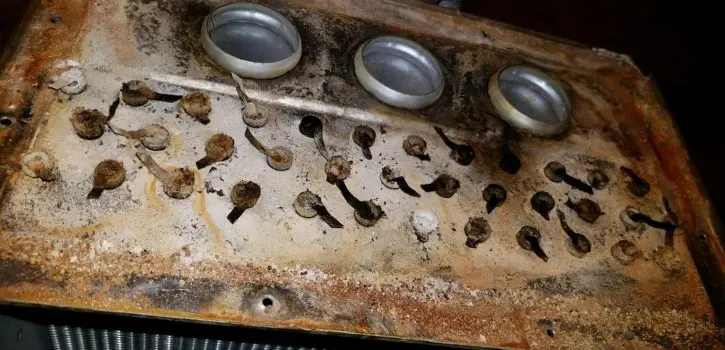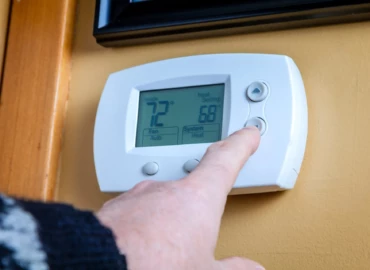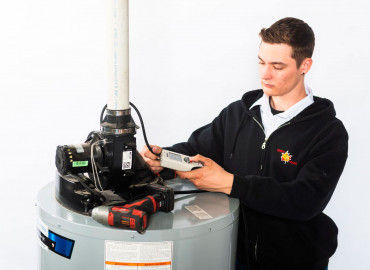Why Is My Furnace Leaking Water?
Furnace leaking water is a common problem that can lead to costly repairs and potential health risks if neglected. This problem, which may seem trivial at the outset, can result in serious damage to your furnace and property over time. Therefore, it is essential to understand the reasons behind your furnace leaking water and take immediate action to fix the issue.
Furnace Producing Water: The How and Why
Before diving into the reasons for furnace water leaks, let’s understand how a furnace operates. The furnace comes into play when the indoor temperature drops below the thermostat’s set temperature. The thermostat sends a signal to the furnace’s control board to initiate the heating cycle. The ignition switch turns on, the gas valve opens, and the draft fan creates combustion. The combustion warms the heat exchanger, which releases the flue gases outside through the exhaust pipe. The blower fan then pushes the cool air from inside your home past the heat exchanger, where the air absorbs the heat and is circulated throughout your house’s ventilation system.
One might wonder, why does a furnace produce water? The answer lies in the type of furnace you have. Standard efficiency furnaces, also known as conventional furnaces, do not produce water. However, high-efficiency furnaces (90% efficiency or more), feature a second heat exchanger, which creates condensation. This condensation is a significant amount of moisture that needs to be drained properly. If unable to drain, it can lead to water leakage.
Common Causes of Furnace Water Leaks
High-Efficiency Furnace Leaks
High-efficiency furnaces can leak water due to improper condensation drainage. The condensation runs down the exhaust/flue pipe, through the condensate drain hose, and into the inducer assembly. Here are some common situations that can lead to water leakage:
- Leakage from Condensate Drain Hose: The drain hose can get clogged with debris, dirt, and dust, leading to a condensation leak.
- Inducer Assembly Leaking: If the inducer assembly is cracked, water can leak out of the furnace.
- Leakage from Condensate Drain Line: Loose connections, cracks, or holes in the condensate drain line can cause water leakage. If the drain line is clogged, it can cause the condensate to back up, creating a water leak.
- Overflowing Condensate Trap: A clogged condensate trap can cause condensate to back up and overflow out of the furnace.
- Condensate Pump Leaking: The condensate pump, where the condensate drains into, can get clogged and lead to a leak.
Standard Efficiency Furnace Leaks
Standard efficiency furnaces do not produce water. If water is found around such a furnace, it is likely coming from another appliance. Here are a few appliances to investigate:
- Air Conditioner: Your AC unit generates water when running, making it a common source of leaks.
- Hot Water Heater: Over time, the drain valve or T&P valve of your water heater can loosen, allowing water to seep out.
- Humidifier: If you have a whole-house humidifier, a leaking humidifier can occur when the water lines crack, break, or get clogged due to lack of maintenance.
Is a furnace leaking water risky?
Even though water leakage is a common problem among furnaces, it is not something to be taken lightly. As such leaking water does not pose an immediate risk, but if left untreated, repercussions can be bad. Water leaks from the furnace need immediate attention because they lead to:
- Rust decays: Furnaces leaking water are prone to rust development. Rust decays working parts of furnaces and, eventually, leads to cracks. Cracks may expose you and your family to harmful gases like carbon monoxide.
- Electrical components: Water leaks can damage the internal electrical components of furnaces. It may result in a complete furnace breakdown. For instance: Water leaks in a furnace may destroy the circuit board and stop transmitting signals.
- Risk of electrical shocks: Water leaks enhance the risk of electrical shocks. That’s why furnaces leaking water should be handled with care, especially when kids are around. If you see water pooled around the furnace, don’t walk barefoot and use wood/plastic/any electric insulator to handle it.
We recommend you not to ignore water leaks and get them fixed on time.
Steps to follow if your furnace is leaking water
By now you know the type of your furnace, the possible reason why your furnace is leaking water, and why is it important to get it fixed on time. It’s time to know what to do when your furnace is leaking water. Here are 4 simple steps for you:
- Turn off your furnace safely with a wooden or plastic stick. Wood and plastic are insulators of electricity and save you from electric shocks.
- Clean water pooled around the furnace with cloth towels or paper napkins. Try to clean and dry as much as possible.
- If you feel comfortable, you can remove the front panel of the furnace to clean up the water inside.
- If the problem persists, contact a local HVAC expert for quick furnace repairs. Don’t DIY your way around furnaces, it may prove to be fatal.
For urgent help in Toronto and cities nearby, contact Smile HVAC at 437-777-4555.
Common Causes of Furnace Leaking Water [WITH PICTURES]
Now that you understand the two primary types of furnaces let’s explore the possible reasons for water leaks in both high-efficiency and conventional furnaces.
High-efficiency furnace leaking water
High-efficiency furnaces aka condensing furnaces use two heat exchangers to heat the air and produce condensation as a by-product which is supposed to be drained into the floor via drain pipes. Any mishap in the drainage process leads to leaks.
You can identify your furnace type by referring to PVC pipe or Annual Fuel Efficiency Rating. A plastic PVC pipe or a high AFUE rating (90% or more) are two identifiers of high-efficiency furnaces.
A few common reasons why high-efficiency furnaces leak water are as follows:
1. Clogging of drainage system
In a high-efficiency furnace, a drainage system includes a drain line, drain pan, and condensate pump. It is common for furnaces’ drainage systems to clog up because condensate carries dirt that accumulates at one point and leaks water.
A simple fix to clean the drain pipe is blowing out the dirt. Refer to this video for how to fix clogging in high-efficiency furnaces.
2. Cracks in a drain pan
Condensation water is acidic, and if the drain pan is metallic, it leads to rusting. Even if the drain pan is made of plastic, it may develop cracks and holes due to constant exposure to temperature changes and acidic water.
An easy fix is blocking the holes with a waterproof sealant. In case the drain pan deteriorates completely, replace it.
Refer to this video to troubleshoot and fix issues with condensate pumps.
3. Broken condensate pump
Furnaces produce condensation and drain water into the floor through pipes. However, not all homes have a built-in floor drain. In that case, a condensate pump helps drain out water. It can also crack or break and cause a furnace to leak water. Water pooled up around the condensate pump indicates the possibility of a broken pump.
Non-high efficiency furnace leaking water
Non-High Efficiency Furnaces aka standard-efficiency furnaces are non-condensing and don’t release water as a by-product. They face the issue of water leaks due to other appliances like humidifiers, heat exchangers, and air conditioners.
You can identify your furnace type by referring to PVC pipe or Annual Fuel Efficiency Rating. A metal PVC pipe or lower AFUE rating are two identifiers of high-efficiency furnaces.
1. Issues with humidifiers
Humidifiers add moisture to the warm air generated by a furnace. When a humidifier cracks, it causes a puddling of water on the floor. Clogs, breaks, and holes cause problems in a humidifier.
Refer to a quick checklist to troubleshoot a broken humidifier. For a more detailed understanding of how a humidifier works, click here.
2. Clogged filter
With time and usage, filters get clogged with dirt. It leads to poor airflow and results in the freezing of the coil. Eventually, a frozen coil can cause water leaks in a furnace. Moreover, dirty filters reduce furnaces’ efficiency and cause overheating.
To avoid expensive repairs, it is recommended to get furnace filters cleaned or changed regularly.
3. Heat Exchanger Issue
A heat exchanger is a metal shield that prevents exhaust gases like carbon monoxide from entering the house. With time and excessive usage, heat exchangers may crack and cause moisture to leak out. The chances of water leaks by a heat exchanger are considerably low.
Heat exchangers should be dealt with by professionals. Book an appointment if you face any issues with heat exchangers.
Conclusion
If you notice water pooling around your furnace, do not hesitate to take action. Address the issue promptly by following the steps outlined in this guide and contacting an HVAC professional if necessary. By taking care of furnace leaks, you can prevent costly repairs and ensure a comfortable and healthy living environment for you and your family.
FAQ
Why is my furnace leaking water from the bottom?
Furnace water leakage from the bottom can be caused by a few factors, including a blocked condensate drain, a malfunctioning condensate pump, or a cracked heat exchanger. It's important to address this issue promptly, as it can lead to more significant problems.
Is it normal for a furnace to leak water?
No, it's not normal for a furnace to leak water. While some condensation is typical during the heating process, excessive water leakage indicates an issue that requires attention.
How do I stop my furnace from leaking water?
To stop your furnace from leaking water, you should check and clean the condensate drain line, replace a faulty condensate pump if needed, and inspect the heat exchanger for cracks. It's best to consult an HVAC professional for proper diagnosis and repair.
How much water should be coming out of the furnace?
The amount of water produced by a furnace's condensate system should be minimal and typically not noticeable. Excessive water leakage is a cause for concern and should be addressed promptly.
How do you unclog a furnace drain line?
To unclog a furnace drain line, you can use a wet/dry vacuum or a pipe cleaner to remove debris and blockages. Regular maintenance and cleaning of the drain line can help prevent clogs.
Can a dirty filter cause the furnace to leak water?
Yes, a dirty filter can indirectly cause water leakage from a furnace. A clogged filter restricts airflow, leading to a drop in temperature in the heat exchanger. This can cause condensation to freeze, potentially leading to leaks when it thaws. Regularly changing or cleaning the filter is essential to prevent this issue.

